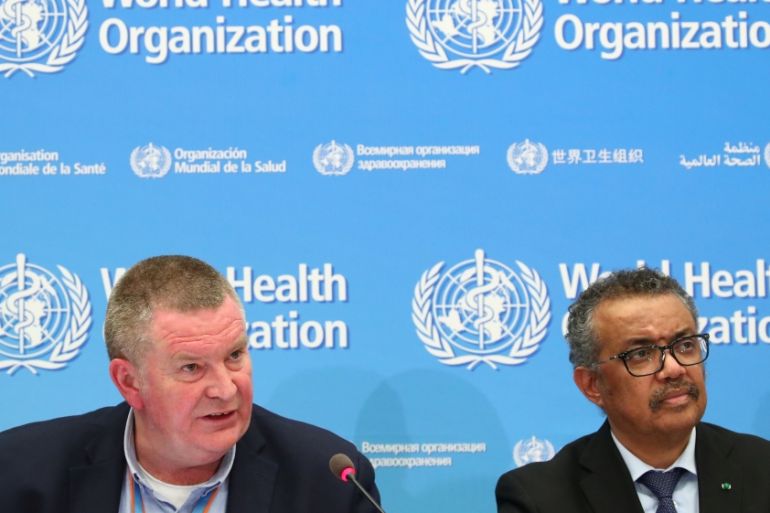WHO says ‘extreme vigilance’ needed in exit from lockdowns
The warning comes as several nations begin to ease coronavirus restrictions and reopen their economies.

The World Health Organization (WHO) has hailed dwindling COVID-19 infection rates and deaths in some countries, but called on nations to show “extreme vigilance” as they begin loosening restrictions.
Swathes of Europe began the long process of reopening from coronavirus lockdowns on Monday, with officials in countries like France and Spain emboldened by declining death rates.
Keep reading
list of 3 itemsSouth Korea scrambles to contain new spike in coronavirus cases
Wuhan reports first coronavirus cluster since end of lockdown
Germany earlier reported an acceleration in new coronavirus infections after it took initial steps to ease its lockdown. South Korea, another country that had won widespread international praise for its success in limiting virus infections, has seen a new outbreak in nightclubs.
“Now we are seeing some hope as many countries exit these so-called lockdowns,” Dr Mike Ryan, head of the WHO’s emergencies programme, told an online news briefing. But he added that “extreme vigilance is required”.
“If the disease persists at a low level without the capacity to investigate clusters, there’s always the risk that the virus takes off again,” he said.
Ryan said he was hopeful that Germany and South Korea would be able to suppress new clusters and praised their surveillance, which he said was key to avoiding large second waves.
“It’s really important that we hold up examples of countries who are willing to open their eyes and willing to keep their eyes open,” he said. In contrast, he said other countries, without naming them, were “trying to drive through this blindly”.
WHO Directo-General Tedros Adhanom Ghebreyesus told the same briefing that lifting restrictions was “complex and difficult” and that the “slow, steady lifting of lockdowns” was key to protecting lives and livelihoods.
Tedros said that Germany, South Korea and China – which has reported a new cluster in its original epicentre, Wuhan – all had systems in place to respond to any resurgence in cases.
“Until there is a vaccine, the comprehensive package of measures is our most effective set of tools to tackle the virus,” Tedros said.
‘Herd immunity’ warning
The WHO warned against the notion in some countries that even if they do not take the measures needed to halt the spread of the virus, their populations will quickly build so-called “herd immunity”.
“Early serological studies reflect that a relatively low percentage of the population has antibodies to COVID-19,” Tedros said, pointing out that this means “most of the population is still susceptible to the virus”.
More than 90 so-called serological studies, which reveal the presence of antibodies in the blood to determine whether a person has had a past infection, were being conducted in several countries.
Maria van Kerkhove, a WHO epidemiologist, said that while the UN agency has not yet been able to critically evaluate the studies, initial data released showed that between one and 10 percent of people had antibodies.
“There seems to be a consistent pattern so far that a low proportion of people have these antibodies,” she said.
Ryan agreed, saying the early results belied the widely-held assumption that most cases of the virus were mild and going undetected.
Preliminary results were “showing the opposite … that the proportion of people with significant clinical illness is actually a higher proportion” than previously thought, he said, stressing that “this is a serious disease”.
“This idea that maybe countries that have lax measures … will all of a sudden magically reach some herd immunity, and so what if we lose a few old people along the way … is a really dangerous, dangerous calculation,” he said.
|
|